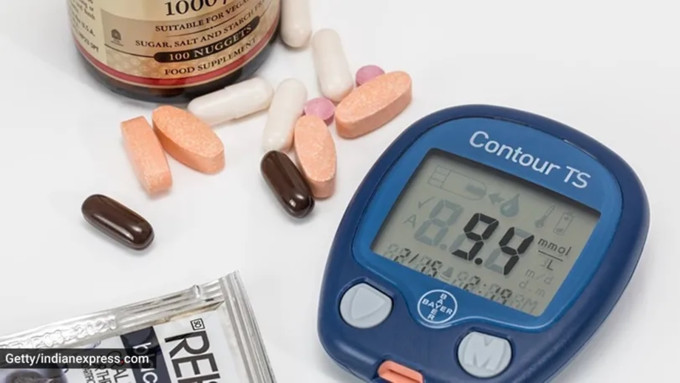ICMR says diabetes can cause uterine cancer; here’s how you can protect yourself
Persistent fatigue, unexpected weight loss, and frequent urination could be signs of diabetes. But there’s more to the story. Worryingly, the Indian Council of Medical Research (ICMR) has warned of a link between type 2 diabetes and a rise in uterine cancer cases. This highlights a crucial point: managing diabetes goes beyond just blood sugar control. It’s about reducing the risk of serious complications, like uterine cancer.
Their findings show that diabetes mellitus (DM) significantly increases the risk of endometrial cancer (EC). In fact, women with type 2 diabetes are twice as likely to develop EC, according to ICMR. The research suggested that high blood sugar levels in diabetes may contribute to the growth and spread of endometrial cancer cells.

The ICMR points to a link between these two seemingly unrelated conditions. One key factor is obesity, a common thread in both. Excess weight disrupts healthy hormone production, leading to high insulin levels in diabetes. This hormonal imbalance might also contribute to the uncontrolled cell growth seen in uterine cancer, explained Dr Rajeev Gupta, Director of Internal Medicine at CK Birla Hospital, Delhi.
Furthermore, obesity can trigger chronic inflammation throughout the body, potentially creating an environment that promotes cancer development. Understanding these shared pathways is crucial for researchers to develop preventative strategies and improve patient care.
Beyond Diabetes: Other risk factors and how to mitigate them
Many factors can increase cancer risk. Chronic inflammation and oxidative stress, often associated with diabetes, weaken the immune system and promote abnormal cell growth.
 Excess weight disrupts healthy hormone production, leading to high insulin levels in diabetes (Source: Getty Images/Thinkstock)
Excess weight disrupts healthy hormone production, leading to high insulin levels in diabetes (Source: Getty Images/Thinkstock)
This risk is heightened by obesity, which can lead to a high-estrogen environment and chronic inflammation. Other contributing factors include age, HPV infection, unhealthy habits like smoking and alcohol use, and insulin resistance.
Dr Priyanka Suhag, Consultant, Department of Obstetrics & Gynaecology at CK Birla Hospital, Delhi, emphasised the importance of a healthy lifestyle for risk reduction. Here are some key steps:
Maintain a Healthy Weight: Diet and exercise are crucial for weight management.
Eat a Balanced Diet: Prioritise fruits, vegetables, and whole grains.
Exercise Regularly: Physical activity helps manage weight and overall health.
Manage Diabetes: Work with your doctor to effectively manage your diabetes.
Consider Vaccinations: Vaccinations like HPV can help protect against certain cancers.
Control Blood Pressure: Managing hypertension is also important.
Talk to Your Doctor: Regular checkups and open communication are key.
By understanding the link between diabetes and uterine cancer, and by adopting a healthy lifestyle, you can take proactive steps to protect yourself. Remember, early detection is crucial. If you experience any concerning symptoms, don’t hesitate to consult your doctor.
Disclaimer: The copyright of this article belongs to the original author. Reposting this article is solely for the purpose of information dissemination and does not constitute any investment advice. If there is any infringement, please contact us immediately. We will make corrections or deletions as necessary. Thank you.

